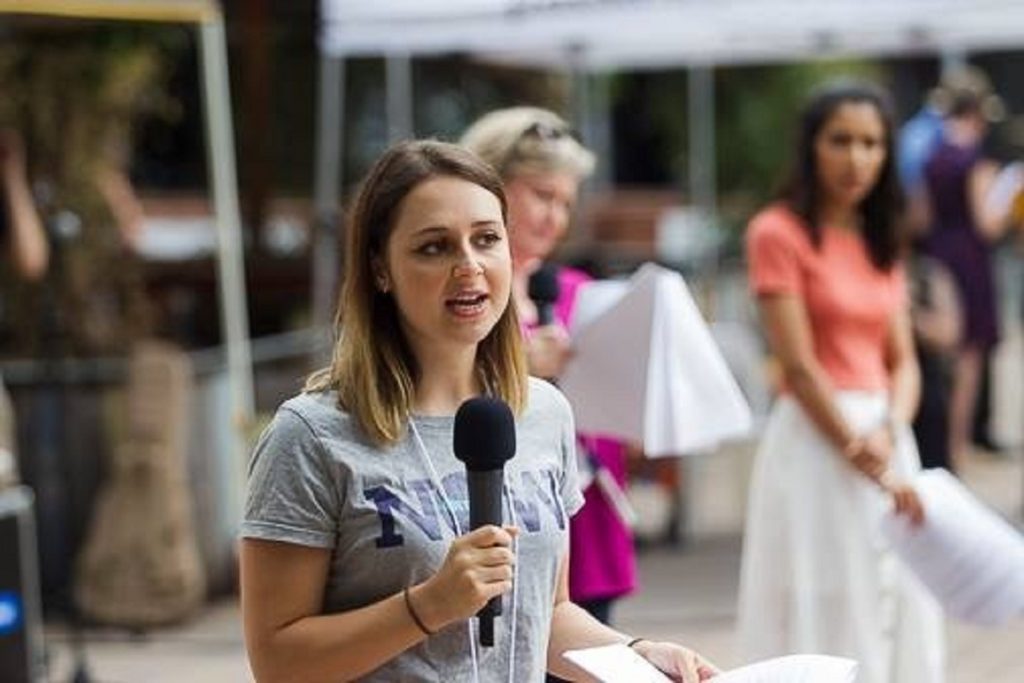The last three years have been particularly turbulent in federal politics. As a young woman watching these events, it’s been abundantly clear to me that those in power are not prioritising care for me, or women like me, in their day-to-day decision-making.
For the last five years, I’ve focused on getting more young women into politics, building on a further five years leading youth movements creating political change. I’ve been recognised on a domestic and international level, have run workshops at the UN, and been invited to speak to international audiences on youth engagement with politics. But not once have I seriously considered running for office (despite being asked many, many times), nor have I ever been tempted to join a political party. To be honest, I’m not sure that our political system will let me create the change I wish to see – and I’m terrified of the way women in the public eye are treated, a concern often reflected to me by the young women and gender diverse people I work with.
So, it was no surprise to my team at Raise Our Voice Australia when our recent survey of young women and gender diverse people, conducted in partnership with The Body Shop ANZ, showed young women and gender diverse people are disgusted with the culture of politics and want to influence decision-making, but are avoiding the toxic halls of parliament with a barge-pole. But this group is not to be underestimated: young women and gender diverse people are ready to wield their votes at the coming election, with 83% of female and gender diverse respondents aged 30 and under reporting that they are far more likely to make an informed vote. In 2020, an estimated 3.2 million young people aged 15–24 lived in Australia, making up 12% of the Australian population. Young women and gender diverse people make up about half of this. While this might seem small, if we were to be represented adequately, we would see just over 13 politicians sitting in parliament, enough to make or break a bill. Candidates: ignore this group at your peril.
Further to this, 44% of respondents said they’d be less likely to pursue a career in politics in response to the events of the last 12 months, with 61% of this cohort indicating that media discussions have been a discouraging factor. 37% of respondents said they were less likely to become a member of a political party. This should give us cause for concern; whether we like it or not, political parties are the home of the leaders who must lead and drive our national structural reform, including around gender issues.
The last four years have seen a groundswell in discussions on the absence of women from politics. We haven’t been as good at having the conversation about the absence of young women and gender diverse people.
The thing is, we’re a force to be reckoned with. We’re leading climate protests and demanding action. We’ve recently been successful in securing a commitment for securing consent education in schools. We’ve redefined conversations around sexual assault and the strength of survivors. As we consider our recovery from the pandemic, it’s critically important to have young people as the architects for the country we will lead – and are already leading.

This election, please listen to our voices, the voices of passionate young leaders, and recognise that political engagement is more than just running for office. We need to recognise that the issues facing young women and gender diverse people – that face young people – may overlap with those of our youth-adjacent counterparts, but they are decidedly different. As young women, we not only faced the gendered impacts of the crisis, including higher volumes of lost employment due to the pandemic and increased caring responsibilities, but the challenges faced by young people, including higher rates of COVID cases, higher rates of psychological distress, and under-representation in JobKeeper access. And we’re ready to vote.
A democracy which creates the best outcomes is one which reflects the population it represents. It incorporates the lived experience of the people who are at the forefront of the issues it’s seeking to solve. And if we don’t ensure that this election, we risk leaving a significant part of our population behind.
So, candidates: listen up. Young women are listening, we’re researching, we’re deciding. And you need to take us seriously this election.

